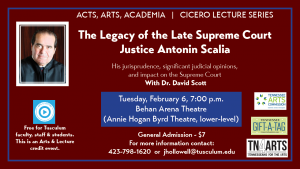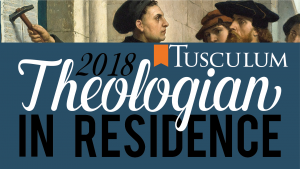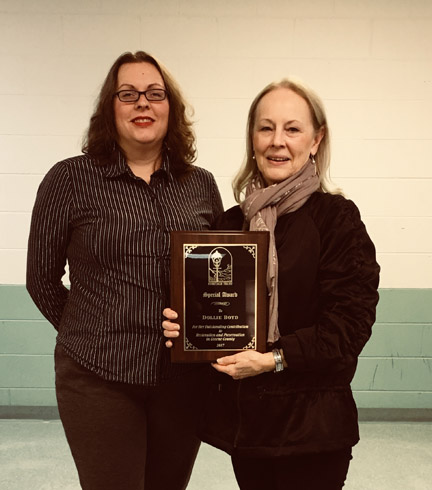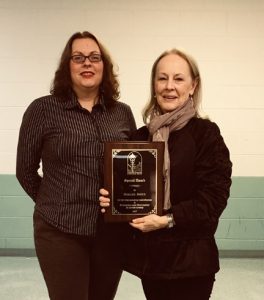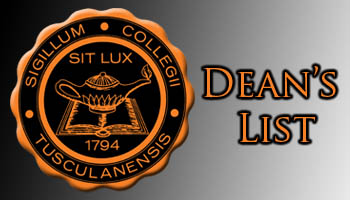
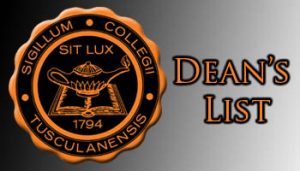
Tusculum College Dean’s List – Fall 2017
President’s (*), Dean’s and Charles Oliver Gray
Scholars (+) List
Abigail Leigh Adams +
Shawn Travis Adcox *+
Ashley Elizabeth Akins +
Shawna Alder *
Brandon Lee Alexander *+
Marena Elizabeth Allen
Makenzi Lynn Alley +
Anna Catherine Alloway *
Evan R Altizer *+
Ivan Andabak +
Katja Sabina Elisabeth Andersson *+
Ashley Marie Andrukonis +
Alicia Renea Armstrong *+
Hannah Beth Arnett +
Charles Tyler Bailey +
Kyle Craig Bailey +
David Murphy Baker
Mark Edward Baker *
Samuel Ray Baker
Brandon L Ball +
Sonja Ballmert +
Meredith Elizabeth Barton
Maggienella Basile
Kiana Alexandria Batagelj
Seth Stanley Batsel +
Taylor Alexandria N. Battle +
McKenzie Beavers +
Amanda Odessa Beckner
Courtney Michelle Beddingfield
Grace Ann Beddingfield
Anthony Joseph Bell
Keegan Michael William Bell +
Timothy Christian Bell +
Brian James Bennett +
John Evan Bennett
Gabriel Guell Bernardi
Christopher Lee Berney *
Carrigan G. Bishop
Jazmyn Breighann Bishop
Lillian Elizabethany Blair
Shania Makalya Nicole Blair
Christina Michelle Blevins *+
Matthew Ryan Blevins
Elijah Gregory Boles
Crystal Lynn Bontrager
Wesley Lynn Book *+
Cassandra Marie Born
Melvin Christopher Bowen *+
Ashley Bowers
Earnest William Brady
Tatiana Brady *
Kristi Michelle Breeden
Alexander Neil Briggs +
Madison Olivia Brooke
Brittani Allyn Brooks +
Melissa Bryant +
Jared David Burgner
Riley John Burns
Judith Cahansa Butler +
Melissa Kay Callahan +
Brandi Leigh Campbell +
Spencer Lynn Campbell-Garant
Hunter Mason Cantrell +
Bradley Mitchell Capps +
Jessie Leonard Carey *+
Erin Helene Carmody *+
Conrad Regis Carney
Laura Kaye Carr +
Emma Casey
Jackson M. Cauthen
Cayla Brooke Cecil *
Brando J Centrone
Edgar Joaquin Cervantes
Jorge Francisco Cervantes
Danika Kendall Chaney
Matthew Keith Church +
Alyssa M. Clifton +
Melinda Marie Clonce +
Christopher Murray Cochrane +
Stephanie Leanne Cockrum +
Angel Marie Cogdill +
Rachel Breeanna Cole
Brittanee Danyell Collins *+
Chelsea Breanne Collins +
Riley Edward Collins
Chad Dewayne Colvin +
Sarah D. Combs
Paula Renee Conley
Heather Natasha Cope
Polly Louise Cowart +
Paige Arnelle Cowden +
Monica Coy
Chester Craig +
Christen Janay Craig +
Karli Lynn Creasman
William Wayne Cronin
Chetina Leanna Cunningham *
Yolizma Shelane Cupidan
Jacob Ryan Cutshall *+
Clement Dagorn
Deniz Dalkiran
Mariah Kilday Dalton +
Miranda Brooke Dalton +
Sarah Caitlin Dando +
Anna Nicole Daugherty +
Henry Reed Whitaker Davis *+
Glorianna F. De Repentigny *
Thomas Alexander Deacon *+
Payton Alexandra Dehart +
Rachel N Del Duca
Carter Andrew Delsorbo +
Kayli Ashton Dempster *+
Gabriella Derrera +
Drew Allen Devoti +
Ashley Mae Dingus +
Angela Dawn Dixson
Kelsea Morgan Dobbs
Kayla Brooke Dodson
Abby Lee Ann Dohrman *+
Kelly Chase Donnelly +
Savanna Nicole Draper
Kelly Breann Ducote +
Dynah Ali Dunn
John Eric Durr +
Tabitha Ann Dyer
Blaine Leroy Dykes +
Anthony Chase Eason *
Michael Jason Eggert +
Deidre Michelle Elkins +
Savannah Elliott *+
Blake Connor Enis
Kathryn Elizabeth Estes
Isaac Connor Evans
Lori Ann Farmer *+
Tyler Edward Farrington *
Kristoffer Mykell Fernandez +
Yago Fernandez
Zachary G Finchum
Elizabeth Cheyanne Fisher +
Karli Payten Fisher *+
Erica C. Fletcher +
Camilo Florez *+
Hayden Kate Fobare *
Bryson Royce Ford
Danielle Grace Forsythe
Richard Jay Forsythe *+
Claira Jean Fowler
Tesa Lashae Fox +
Brittney R Franse
Macy Amanda French *+
Genevive Frisbee
Justin Michael Frye
Franziska Funke *+
Alissa N Furches *
Gustavo Ituassu Gantus
Anthony Blase Gatewood
Alexus Breann Gibson
Courtney Skyler Gibson
Kory Brent Gillam
Justin Lee Gilland +
Emily Ann Gleason +
Haley Morgan Glenn
Pierrick Godefroy
Tammy Fletcher Golden
Mollie Anne Gordon
Alexander T Grady
Hannah Marie Graham +
James Daniel Graham
Shelby Anne Gray
Heather Brooke Greene +
Jeffrey Connor Greene
Ashley Elizabeth Greer +
Kimberly Grace Gregg +
Tyler Guffey +
Kate Guildford
Alexander William Haffcke
James Travis Hale +
Charles Jeffrey Hall *
Holly Brooke Hall +
Symantha Rea Hammock *
David Haney +
Jesse Robert Hargis
Ethan E Harmon
Jamie Rae Harmon *
Terry P. Harris
Jimmy Wayne Harrison +
Matthew James Hathaway
Kelsey Haun
Julia Grace Hawkins
Michael James Haycox
Dustin A. Hayes
Jonathan E. Hayes *+
Amie Nicole Helton +
Kacy Underwood Helton
Peyton Drew Henley +
Emily Elizabeth Hester +
Mason Bradley Hewitt +
Sherri Shelton Hightower *
Gregory Ward Hilemon *+
Kristina Marie Hill +
Bradford Blaine Hinkle *+
Randall L. Hinton +
Gina C Hobson *+
Ernest Tyler Hockett +
Amy Marie Hodge +
Heather Lea Hoover
Sayre Catherine Hopper *+
Christel G Householder
Jennifer Lauren Housley
Alec Robert Howard +
Brittany K Hoyle +
Tina Louise Hubbard *+
Kayci Lee Hubbuck
Blair Goosie Idol *+
Jessica Kay Inscore
Makayla J Inscore +
Emily Iorga *+
James Michael Malis Irwin *+
Dana Marshall Jackson *+
Lindsay Erin Jackson +
Katie Elizabeth James +
Kierney Lynn Jarvis +
J’Quen O. Johnson +
John Paul Johnson
Nash Julian Johnson
Tashique Kader +
Brian Adrian Kelso
McKenna Rae Keltner *
Bailey Caroline Kennedy +
Indya Symone Kinard
Landon Andrew King
Haylee Danielle Kirby +
Toby De Klerk +
Tomas Kmetko +
Jordan Knight
Steven Frazier Knowles
Kelsi Hayden-Flaire Knox +
Makayla Ellen Knuchel
Matthew Brian Kowalski
Andreas M. Kvam +
Bailey Elaine Laws
Brandy Rose Lawson +
Felicia Dawn Lawson +
Hannah Nicole Lawson +
Mary Kristina Lawson *+
Matthew Travis Lawson +
Alec Tanner Lay
Alvis T Legg
Anna Lewis *
Toby Lee Livesay +
Dario Ljubic
Kohl Michael Lobsiger
Amber Lynn Loggains +
Brittany D. Lowery +
Daniel Ray Lowery +
Stephanie Lutz
Benjamin Travis Lyle +
Todd Eric Lynch
Amy Patrice Lyon
Emma Catherine MacDonald *+
Liam Henry Martel MacDonald
Morgan Mahaffey *+
Rebbecca Ann Major
Katarina Majorova +
Micah Leewayne Maltba
Keri Jean Mantooth
Tina Marie Marascia
Matthew David Marlow
James David Massengill +
Samantha Lian Massengill
Melissa Elizabeth Mazur
Mitchell Vance McCain
Kelli Lynn McCalla +
Sydney Nicole McCallister
Emily Ann McCarter
Joseph Bryson McCarter *+
Tiaira Janay McCloud *+
Shawn Tommie McClure
Courtney Diane McCollister
Kylie Rose McCormick
Emma E. McCuiston +
Annie Beth McCullough +
Caitlin McCullough
Mary Elizabeth McDaniel
Sean Clement McDaniel
Bethany N. McFall +
Kiah Brooke McIsaac +
Heather Nicole McMillan +
Nicole Sarah McMillen +
Ragen Danielle McNair +
Matthew Edward Meese *+
Rocco Dante Menna +
Marco Meon
Wendy Marie Merrick
John J. Merritt *+
Hannah Elizabeth Metler +
Lisa H. Miller
Patrick Neal Minton *+
Connor Grey Mitchell
James Aaron Monroe
Vasco Miguel Monteiro +
Nathan David Montgomery *
Donna Rayanne Moody
Charles Mark Morgan
Robert Levi Morgan *+
Alycia Marjorie Morong +
Margaret Ann Moss +
Shannon Rose Murphy *+
Cydney Nicole Murrell
McKenzie Michelle Myers
Loyd Benson Napier +
Madison Paige Nelson
Andrew Benjamin Newman +
Marten Niilop
Kellie Leeann Niles *+
Haley Marie Noe +
Ian Michael O’Grady
Kaitlyn Marie Odoms +
Leighann Grace Ornduff
Fabian Paier *+
Kirsten Lynn Pappas
Hannah Nicole Parton +
Allison Ruby Pate
Callie Sierra Patterson
Loren Danielle Peeters *+
Pau Peiro’ Vila +
Blanca Estela Perez *
Jalesa Janae Perkins *+
Linden Danae Perkins
Indra Devi Persaud
Emily Claire Pietzyk
Zachary Sebastian Pike +
Michael Hervy Ponder
Diego C. Poore
Melissa Joy Preast *+
David Ray Presley +
Fabian Proesch +
Lyndsey Blake Pulliam +
Angel Lynn Quay
Tonya Marie Ratliff +
Ciara Rattana +
Michael Bryce Reed +
Tracy Reeder *+
Ivee Alexandra Richesin
Daniel Dean Ricker +
Rachelle Marie Rines
Monica Sloan Roberts +
Paige Ann Roberts
Breanna Marie Robinson
Jenna Mariie Rockwell
Malinda Irene Rode *+
Cameron Isaak Ronald Rogers
Alyssa Nicole Rojas
Alexander Mills Rolison
Kenneth Michael Romines *+
Christopher Scott Rose +
Sarah Elizabeth Rowland +
Amber Michaela Russell *+
Ivan Safranic
Kayla Marie Sager +
Donavon O’Neil Samuels
Rafael Sarasola
Sabrina L. Schleuger +
Brooke Morgan Schreder +
Alex Scott
Christina Shackleford
Michael Avery Sharpe *
Jeffery Alan Shelton +
Erica Michele Shephard
Tara Ann Shields
James Gabriel Shillings
Chad Shults
Madison Kate Shumaker
Payton Dakota Silcox +
Erin Janae Sims *
Lucas L. Singleton *
Nicholas Lauren Sisto
William Tyler Skellinger *
Renato Skoko
Kimberly Ann Slayton *+
Brittany Leann Smith
Brooklyn D Smith
John Rufus Conagher Smith +
Jordan Dianne Smith *+
Michael Jason Smith +
Shelley Lynn Smith *
Carey L. Sommers +
Megan Amber Southerland *
James William Spears
Clarissa Elaine Stanton +
Brooke O. Statler
Paul John Stayskal
Adam Christoper Stewart
Emily Anne Stoklosa +
Alexandra Noelle Stoner
John Frederic Storaska +
Jason Andrew Strange +
Teela Marie Sullivan *+
Thomas Bradley Sullivan +
Destiny Hunter Sutton
Rachel Delaney Swatzell +
Kathy Lyne Swick +
Tara Marie Swift
Ayuk Ekule Tambe
Whitney Lynn Tapp
Jaron Michael Taylor +
Samantha Gayle Taylor
Terrie Shea Taylor *
Tyler Jacob Terry
Rachel Thomas +
James Kenneth Thompson *+
Jennifer Rae Thompson +
Kathryn Thompson
Timothy L Thompson
Carlie Amanda Thornber *+
Elizabeth H. Tomassoni *+
Katherine A. Tomassoni +
Donald James Townsend
Daniel Joseph Tremaine +
Taylor Brooke Trent *
Michael Alejandro Turk
Danielle Madison Turner *
Jessica Leanne Turner +
Remola Wanavee Turner
Everett Cole Underwood
Cheyenne Upton *+
Alexandra Michelle Valeri
Sarah Elizabeth Vanhook
Skylar A Vicars
Rebekah Grace Voiles +
Madelyn J. Vossen +
Megan E. Waddell
Dallas Paul Wade
Brooke Elizabeth Wagner +
Misty Dawn Wallen *+
John Starnes Wallin
Jake Thomas Wapinsky
Brian Curtis Ward +
Anna M. Wardwell +
Justin Emanuel Ware
Benjamin Harden Warnick +
Emily Jo Waryck +
Camille Belle Watkins
Stefanie Dawn Webb *
Trevor Warren Weeks +
Victoria Kailand Weiss *
Amanda Marie Werder +
Victoria Kristine West *
Abigail Anne Wheeler
David James Whinery +
Emily Marie White +
Taylor Lindsey White +
Amanda Adkins Whitson +
Kristen Faith Wiggins
Donna Nicole Wilkerson *+
Taylor Anne Wilkinson
Bryson Lee Williams
Debbie Lee Williams +
Ethan Byran Williams
Gabrielle Madison Williams
Zachary James Williams
Jason Willis
Celena Lynn Wilson *
Sydney Nicole Wilson
Casey Wininger *
Jalissa Rae Winter
Jonathan George Winter
Kimberly Ruth Wise *+
Timothy Ryan Wisecarver +
Kristin Wolfenbarger *
Heather K. Woods *
Peyton Len Woods *
Gabriel Andres Yaguar
Ashley Dawn York +
Kenneth Allen Young
Hunter Slay Yount +
Muhammed Ahmarud Yusuf
Robert Donovan Zirkle




